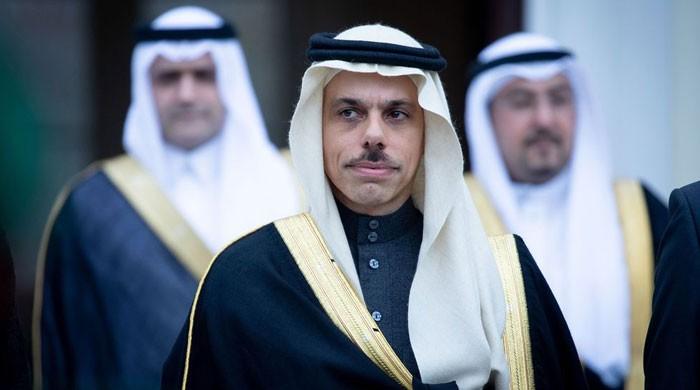BERLIN: Saudi Arabia said Wednesday it won't follow the
United Arab Emirates in setting up discretionary binds with Israel until the Jewish state has
marked a universally perceived international agreement with the Palestinians.
The UAE a week ago turned into the main Gulf state to
standardize relations with Israel,
in a noteworthy US-facilitated accord that raised the possibility of comparable
arrangements with other Arab states, including Saudi Arabia.
Be that as it may, following quite a while of quiet and despite US
strain to declare a comparable arrangement, Saudi Arabia's Foreign Minister
Prince Faisal canister Farhan precluded the chance until the Palestinian
issue is settled.
"Harmony must be accomplished with the Palestinians"
based on peaceful accords as a pre-condition for any standardization of
relations, Prince Faisal advised correspondents during a visit to Berlin.
"When that is accomplished everything are conceivable,"
he included, in a remark that was steady with Saudi Arabia's past position on
the issue.
Ruler Faisal noticed that Saudi Arabia had
supported the 2002 Arab harmony activity holding out the possibility of a
standardization of binds with Israel, however said Riyadh
currently observed no street to strategic relations without a Palestinian
harmony bargain. He said Saudi Arabia was
focused on harmony between the Palestinians and Israel dependent on the Arab harmony plan.
Saudi Arabia has since a long time ago kept up
this open position even as it has developed undercover relations with Israel as of late, in a move led by
true pioneer Crown Prince Mohammed receptacle Salman. Ruler Faisal's
comments are the realm's first official response since the UAE's milestone
manage Israel, which is just the third such accord the Jewish state has hit
with an Arab nation after Egypt and Jordan.
At a news meeting with his German partner Heiko Maas, Prince
Faisal emphasized analysis of Israel's
"one-sided strategies" of extension and building settlements in the
involved West Bank as "ill-conceived" and "inconvenient" to
a two-state arrangement.
As of not long ago, Saudi Arabia had kept up a striking
quiet over the arrangement even as nearby authorities implied that Riyadh was
probably not going to promptly follow in the strides of the UAE, its
standard territorial partner.
US President Donald Trump's child in-law
and guide Jared Kushner demanded Monday that it would be to Riyadh's
greatest advantage to officially set up attaches with Israel. Further
placing the realm at the center of attention, Israeli Prime Minister Benjamin Netanyahu on Monday said Israel was chipping away at opening a
passageway over Saudi Arabia for
trips to the UAE.
In any case, Saudi Arabia, the Arab world's greatest economy and
home to Islam's holiest locales, faces more touchy political computations than
the UAE. Not exclusively would a proper acknowledgment of Israel be seen by Palestinians and their supporters as a
double-crossing of their motivation, it would likewise hurt the realm's picture
as the pioneer of the Islamic world.
"The idea that Saudi
Arabia will be close to standardize relations with Israel was unrealistic," said Aziz Alghashian, an instructor
at Essex University having some expertise in the realm's arrangement towards Israel.
"The greatest requirement for Saudi-Israeli standardization isn't the dread of a local and local
kickback. Or maybe, Saudi Arabia esteems
it important to not standardize relations outside the system of the Arab Peace
Initiative that called for settling the Palestinian issue, in the event that it
despite everything needs to be viewed as the pioneer of the Muslim and Arab
world," Alghashian told AFP.
In 2002 Saudi Arabia supported
the Arab Peace Initiative which required Israel's
finished withdrawal from the Palestinian domains involved after the Six-Day War
of 1967, in return for harmony and the full standardization of relations.

0 Comments